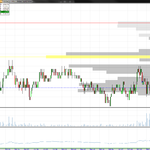DionysusToast
Legendary member
- Messages
- 5,965
- Likes
- 1,501
Serious question - who are you?
When you read the above sentence, a thought will pop into your head. It might be "another load of bo11ox from DT", it might be your name, it might be "Close the thread"...
Whatever that thought is. It probably came in the form of a narration, a voice in your head. Most of us have this narrator in our head all day. It's something we all have and we probably never question it.
When you learn a skill, it is the narrator that is directing you. For example, when you learn to drive, the narrator is telling you step by step what to do next. Mirrors, clutch, gears, steering - all done in a slow and very deliberate manner and all somewhat overwhelming. The narrator has the instructions but he's not that great at execution.
Once you are proficient at driving, the narrator no longer takes any part in the activity.It is as if you are on auto-pilot. I missed the day in biology where they discussed that body part...
In fact, with almost all skills you learn, the narrator would actually get in the way at execution time. Imagine playing tennis and constantly thinking about your stance, your grip, the position of your opponent, speed of the ball etc. etc. You'd have a tough time playing through all that noise. In fact, when you play a game like tennis, chances are the narrator is silent and you are just enjoying the game.
So who is this narrator? Is the narrator you? Are you the narrator? Is the narrator a small part of who you are?
And who should be doing the trading?
When you read the above sentence, a thought will pop into your head. It might be "another load of bo11ox from DT", it might be your name, it might be "Close the thread"...
Whatever that thought is. It probably came in the form of a narration, a voice in your head. Most of us have this narrator in our head all day. It's something we all have and we probably never question it.
When you learn a skill, it is the narrator that is directing you. For example, when you learn to drive, the narrator is telling you step by step what to do next. Mirrors, clutch, gears, steering - all done in a slow and very deliberate manner and all somewhat overwhelming. The narrator has the instructions but he's not that great at execution.
Once you are proficient at driving, the narrator no longer takes any part in the activity.It is as if you are on auto-pilot. I missed the day in biology where they discussed that body part...
In fact, with almost all skills you learn, the narrator would actually get in the way at execution time. Imagine playing tennis and constantly thinking about your stance, your grip, the position of your opponent, speed of the ball etc. etc. You'd have a tough time playing through all that noise. In fact, when you play a game like tennis, chances are the narrator is silent and you are just enjoying the game.
So who is this narrator? Is the narrator you? Are you the narrator? Is the narrator a small part of who you are?
And who should be doing the trading?





